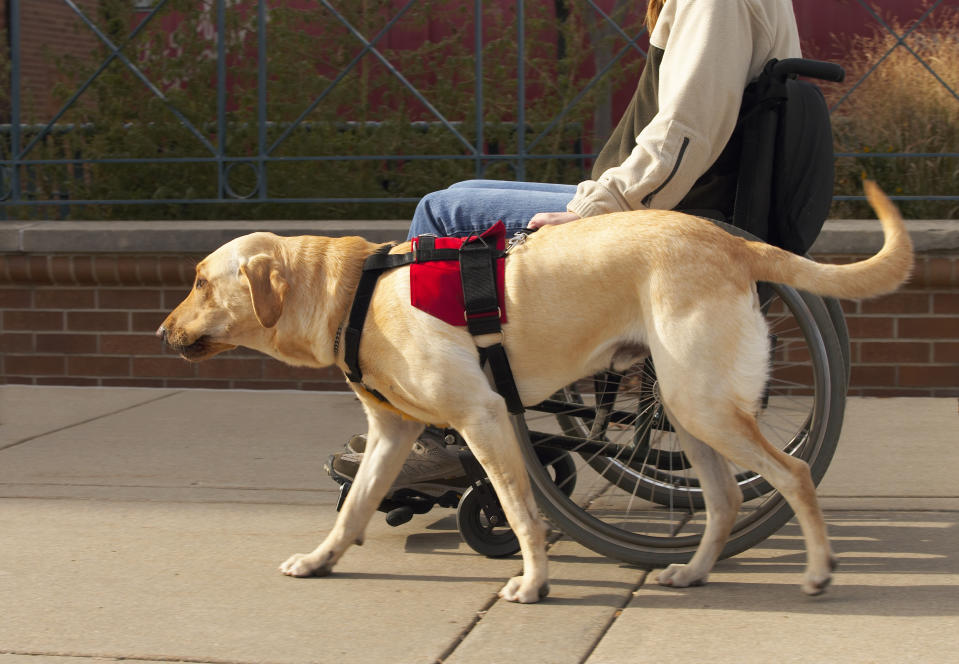This startup wants to use gene-editing to extend the lives of dogs

It takes two years and about $50,000 (£40,490) to train a guide dog. And after just seven years of service, they enter retirement — causing heartbreak for their human.
Forever Friends, a spin-out company from Oxford University, hopes to dramatically expand the lifespan of dogs using new gene-editing technology.
Clustered Regularly Interspaced Short palindromic Repeats — more commonly known as CRISPR — is “akin to the printing press” in science, Natasha Naidoo, a co-founder of Forever Friends, told Yahoo Finance UK.
“Before CRISPR, all of us were in the labs slaving away, similar to scribes trying to transcribe the bible, to get this one gene edit,” she said.
In simple terms, CRISPR exploits a quirk in bacterial immune systems to edit the genes of everything from plants to humans. It can also be used to cut out specific genes and replace them with new ones. That means genes that cause cancer, diabetes, or Alzheimer’s can be swapped out.
“You can do it all in one step, and not just in a single cell— but you can actually do it in a living organism. And that is absolutely a game changer,” said Naidoo.
The retirement of a guide dog is a “technically and emotionally challenging time” for guide dogs and their humans, she noted.
“Humans we’ve spoken to say it’s very close to losing a spouse. Let that sink in. Every six to seven years, they have to go through this heartbreak,” Naidoo said.

“And it’s not because the system is broken, it’s not because something is wrong — it’s because dogs don’t live that long, which is what our solution is.”
On Thursday, Forever Friends was one of the semi-finalists of the Seed Award, a competition run by Chinese real estate firm Seedland.
Pitching to a panel of judges, Naidoo said that her company’s solution would not only see dogs live longer, but also stay healthier for a greater proportion of their lives.
The morbidity period of dogs’ lives — when they are hit with ailments and illnesses — would be reduced so dramatically that “diseases like cancer, Alzheimer’s, and diabetes become things of the past,” Naidoo told the judges.
Because gene-editing of this kind is extremely expensive, Forever Friends said it makes sense to target guide dogs, which already cost tens of thousands to train.
Military and police services, which spend even more on training their dogs, are also likely to be interested in the product, Naidoo said.
But in the future, the technology could be used on your ordinary household dog.
“It’s an opportunity to bring a lot of value to people’s lives, because they do rely so heavily on their dogs,” said Laura Koran, another co-founder of Forever Friends.
It doesn’t stop there. Media coverage of CRISPR has focused on the extent to which it could be applied to humans, something that is not lost on Forever Friends.
“When we get everything to work well in dogs, then we can use what we’ve achieved as pre-clinical trial data for humans,” Naidoo said.

 Yahoo Finance
Yahoo Finance 